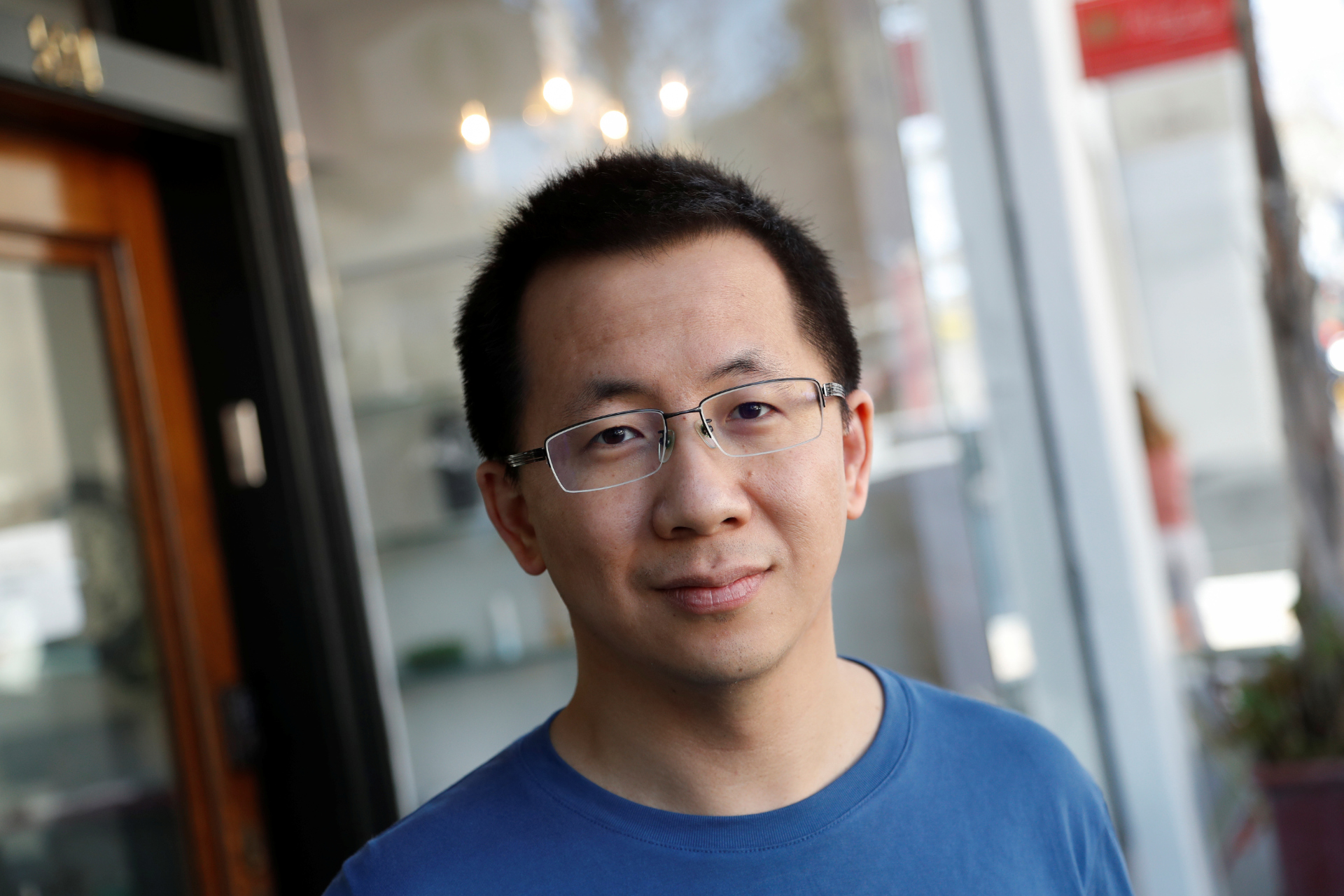Chinese social media users call ByteDance founder unpatriotic and weak in the face of U.S. moves against TikTok
While the news about Microsoft's potential acquisition of TikTok was a huge relief for its American users, it was received poorly on the Chinese internet, with many calling Zhang Yiming, ByteDance’s founder and CEO, a “spineless traitor” and a “despicable coward,” among other insults.

It was a messy weekend for TikTok, the wildly popular video app owned by Chinese internet giant ByteDance. Since President Donald Trump said on Friday that he was planning to ban TikTok over national security concerns, the app, which used to be known for innocuous videos of teens dancing or lip-syncing to viral audio clips, suddenly became a political hot potato and victim of the escalating U.S.-China tech war.
Following Trump’s announcement, Microsoft quickly expressed interest in taking over TikTok’s U.S. operations. Although the deal is still up in the air, Zhāng Yīmíng 张一鸣, ByteDance’s founder and CEO, partially confirmed the rumors about a potential purchase in a letter sent to employees on Monday, saying that the company was “exploring various possibilities” in order to continue “serving American customers,” including selling TikTok to a tech firm that it’s been “in talks with.”
While the news about a potential acquisition was a huge relief for TikTok users in the U.S., it was received poorly on the Chinese internet, with many calling Zhang a “spineless traitor” and a “despicable coward,” among other insults.
“Apparently, Zhang loves America and America loves him. I guess Zhang, as a Chinese, has no animosity toward the U.S. Rather, he couldn’t be more eager to become an American citizen,” read (in Chinese) one of the most upvoted comments on Weibo.
Some people argued that ByteDance was not the first Chinese tech company to face unfair scrutiny by the U.S. government, but none of its peers “surrendered” as quickly under U.S. pressure. “Zhang keeps stressing that ByteDance is a privately owned company. I think what he’s trying to do is indicate that it’s justifiable for him to place personal financial gains above national interests,” a Weibo user wrote (in Chinese) while praising Huawei and Chinese drone manufacturer DJI for sticking to their Chinese roots.
Like the way many previous controversies played out for Chinese celebrities who are ambiguous about their political stances, it was only a matter of time before Chinese internet users dug through Zhang’s old posts to prove their suspicions about his lack of patriotism. “Zhang used to praise America for allowing debate, unlike in China, where opinions are one-sided. Now he’s being self-contradictory. Why didn’t he make his utmost efforts to argue with the U.S.?” a Weibo user questioned (in Chinese), referring to an old Weibo post made by Zhang in 2011.
Zhang since deleted all of his posts on Weibo. But some Weibo detectives were quick to go through Zhang’s entire Weibo-posting history and cherry-picked some remarks they saw as “questionable.” In a screenshot circulating online, Zhang wrote that he was doubtful about the narrative that China is more powerful than the U.S. “When it comes to high-end products and services that have the ability to generate high profits and have high entry barriers, America never falls behind,” he wrote (in Chinese).
Some critics have also posted negative reviews of Douyin, TikTok’s Chinese version. On the app platform for Oppo, a Chinese smartphone brand, hundreds of people have left one-star reviews for Douyin, slamming its owner for being a “weakling” while facing “American shameless aggression.” “A pig would struggle for a bit while being slaughtered. It’s a disgrace that TikTok didn’t even try to fight back before getting down on its knees,” a person wrote (in Chinese), saying that he already deleted Douyin out of rage.
Some news media also joined the attacks on Zhang and his company. In a two-part video series (in Chinese) posted by Guanchazhe, a Shanghai-based news website, Fudan University professor Shěn Yì 沈逸 provided an in-depth analysis of ByteDance’s strategy, saying that it would be “selfish” for Zhang to sell TikTok’s U.S. operations because the move would risk making the Trump administration feel more comfortable attacking other Chinese companies.






